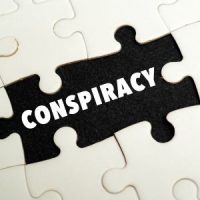Evidence to Prove a Conspiracy Charge

Being charged with conspiracy is a serious matter, a conviction can lead to severe penalties. This is true even if the alleged crime was never actually completed.
If you’re facing allegations, don’t wait to get legal guidance. Conspiracy charges are complex and can be based on limited or misleading information. Understanding what the prosecution must prove and how a Clearwater criminal lawyer can help is key to protecting your rights and future.
Common Evidence Used in Conspiracy Cases
Under Florida law, criminal conspiracy occurs when two or more people agree to commit a crime and at least one of them takes an overt action. Importantly, the crime itself doesn’t have to be carried out, just the agreement and an act toward making it happen.
Conspiracy charges can apply in a wide range of situations. For example, there have been charges connected to drug trafficking operations where multiple people allegedly planned to transport or distribute illegal substances. Additionally, legal accountability has come into play due to fraud schemes involving joint efforts to defraud financial institutions and burglary plots where suspects are accused of planning to break into a property.
Prosecutors rely heavily on circumstantial and direct evidence to prove that a conspiracy existed. The following are common types of evidence presented in court.
- Emails, text messages, social media exchanges, phone records, or intercepted calls can be used to show that people were in contact and may have discussed a plan to commit a crime.
- Witness testimony. Testimony from co-conspirators who have accepted plea deals or from individuals who overheard conversations may be used as evidence. This kind of testimony can be persuasive, even if the witness has questionable motives.
- Video footage, photographs, or law enforcement surveillance showing people meeting in person or engaging in suspicious behavior can be introduced as proof of association and coordination.
- Documents and financial records. Bank records, ledgers, or receipts can suggest coordination, especially in fraud or financial crimes. Evidence showing a flow of money among alleged conspirators can help tie them together.
- Acts in furtherance. Taking action, such as renting a car, buying supplies, or conducting research, can be presented as evidence that someone took a step toward completing the crime.
Whatever type of evidence is in place, it may be possible for a skilled lawyer to challenge conspiracy charges on multiple fronts.
Assessing Agreements and Overt Acts
A key part of any conspiracy charge is the existence of a mutual agreement. Legal professionals may argue that there was no agreement or that casual conversation was misconstrued as a criminal plan. Also, if no clear step was taken toward the crime, an attorney may be able to weaken the prosecution’s case.
Circumstantial evidence is often open to interpretation, too. An experienced Clearwater criminal lawyer knows how to show that the evidence does not conclusively prove guilt beyond a reasonable doubt.
Are you confused on next steps after being accused of conspiring to commit a crime? Connect with the attorneys at King Law Group to build a strong defense and fight for the best possible outcome. Schedule a confidential consultation today.

